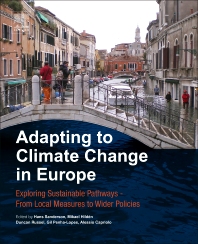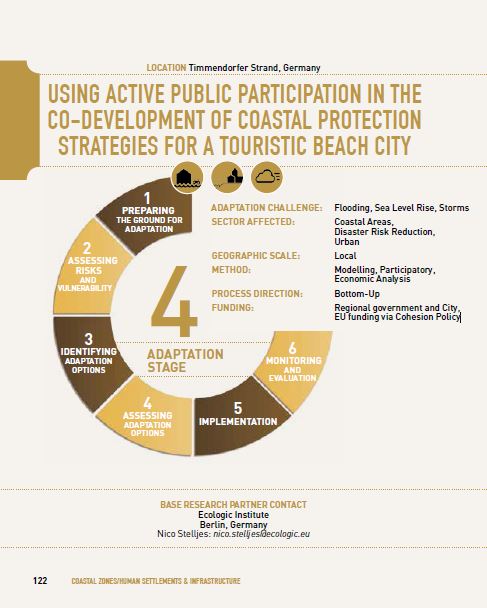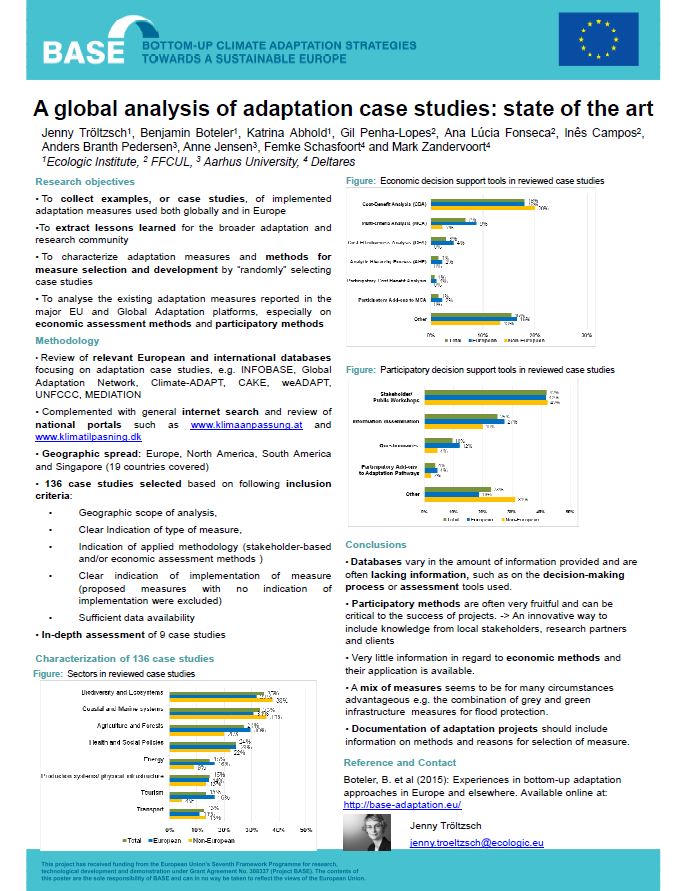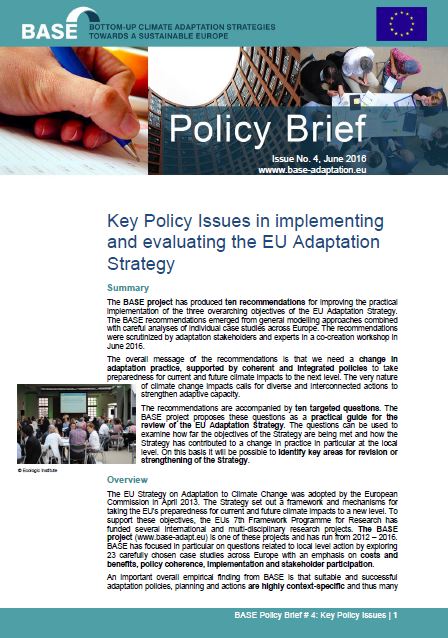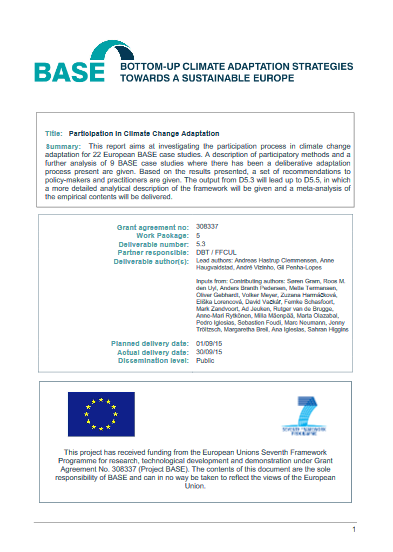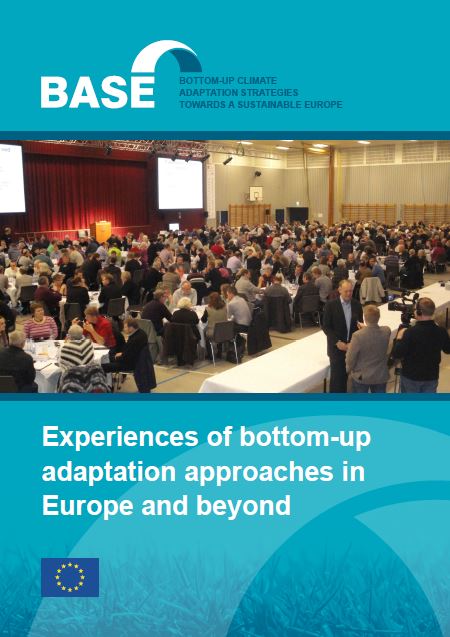"You are the best and the brightest—the crème de la crème." With these flattering words, moderator Vivienne Parry welcomed approximately 1700 attendees from over 100 countries to the fourth edition of Adaptation Futures 2016, one of the largest conferences ever held on climate change adaptation. The Bottom-Up Climate Adaptation Strategies (BASE) project was selected to be featured as a best practice project at the conference. BASE partners, among them Ecologic Institute, presented the project's research and tools in two sessions.
The conference program included 155 diverse and wide-ranging sessions, which were grouped into seven themes and three intersecting issues, including: Cities and infrastructure; Food, Forestry and rural livelihoods; Fresh water availability and access; Public health; Ecosystems and ecosystem based adaptation; Disaster risk reduction; The Arctic, as well as Risk assessment; Adaptation planning and evaluation; Institutions and governance; and Finance, investment and business.
The conference fostered an active exchange of new and practical ideas, experiences and insights among governments, businesses, researchers and civil society from around the world. The conference gave participants the opportunity to share experiences and practical and scientific knowledge about implementing adaptation strategies and projects, while the Adaptation Practice Expo and Business Fair connected knowledge-based supply to practitioners' demand.
Prevention, resilience, practical solutions, tangible results and human rights were among the themes touched upon by keynote speakers in the opening session of the conference. On the second day, Queen Máxima took the podium in her capacity as the UN Secretary-General's Special Advocate for Inclusive Finance for Development. The Queen gave an inspiring speech about climate change and access to financial services, and in particular the urgency of opening up financial services to those who have thus far been denied access to it. The closing session welcomed a number of young scientists presenting their research; it served as the basis for a lively and engaging session and gave the opportunity for a retrospective of the highlights of the conference. As stressed by the Dutch Minister of Infrastructure and the Environment Sharon Dijksma, more is to be done and more will be discussed at the COP22 in Marrakesh at the end of the year.
For this edition of the Adaptation Futures conference, the BASE project was selected as a Best Practice project to be featured. BASE partners presented the project's research and tools in two sessions:
- Local climate change adaptation: Barriers and enablers for mainstreaming and implementation (Presentations are available at the conference website);
- Adapting scientific methodologies - how to compare & evaluate case studies as well as integrate & upscale data (Presentations are available at the conference website)
Participants in the sessions showed great interest in the BASE results presented in the sessions. All findings are regularly presented in the BASE website, newsletter, policy briefs and other material, thus to be at disposal of interested persons and actors in the future.
Furthermore, several presentations were held by experts in various conference sessions, the BECCA and PBCA's adaptation tools – which were developed within the projects - were presented in the Tool Shed, together with a variety of posters displayed in the main hall. More information about the BASE project and, more specifically, on case studies focusing on agriculture was available in the Food, forestry and rural livelihoods pavilion of the Conference EXPO.
BASE POLICY WORKSHOP
After its participation in the Adaptation Futures Conference, the BASE team presented key results, case studies and policy recommendations at the Policy Workshop, which took place on 9 June in Brussels. The workshop brought together stakeholders to share their experiences and knowledge to shed light on European adaptation in policy and practice. Participants discussed the implications of these insights for the implementation of the EU Adaptation Strategy and helped shape a series of recommendations to support the review and future format of the European Adaptation Strategy. More information will be published in due course.
A few results from the Adaptation Conference:
- Overview of speeches, presentations and posters (see also round tables, themes, issues pages for overviews per session)
- Daily Adapt, the daily Adaptation Futures 2016 newspaper
Photo albums
Organisers
Adaptation Futures is the biennial conference of the Global Programme of Research on Climate Change Vulnerability, Impacts and Adaptation (PROVIA) and was co-hosted by the European Commission and the Government of the Netherlands.



